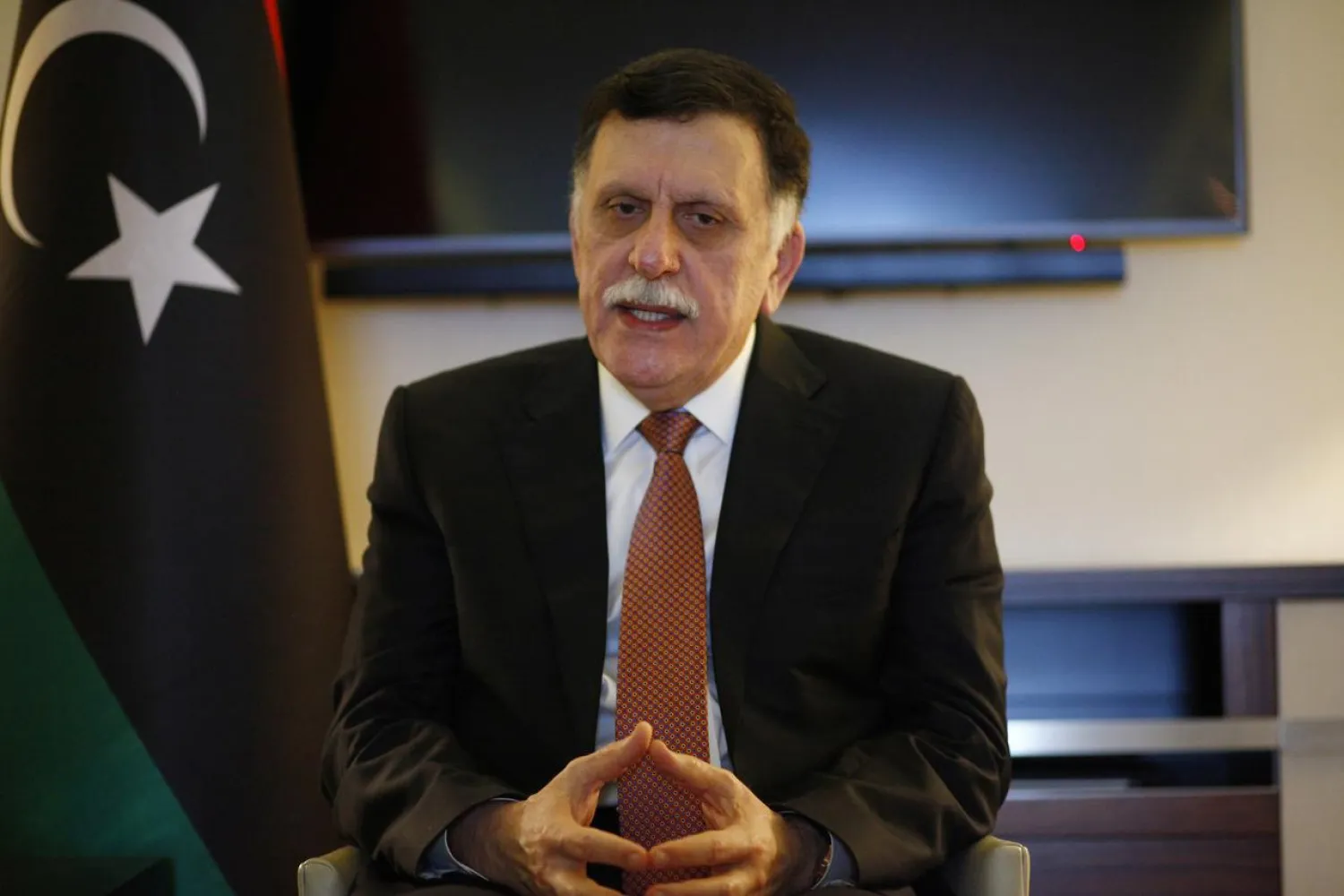The ongoing dispute between Libya’s Government of National Accord (GNA) chief Fayez al-Sarraj and Tripoli-based Central Bank Governor Sadiq al-Kabir is threatening to embolden and strengthen the Muslim Brotherhood’s arm in the bank.
Kabir is seen as an influential member of the Sarraj-headed Presidential Council, which is dominated by the Muslim Brotherhood. He received backing from the council to confront the east-based parliament, which had removed him from his post and appointed Mohammed Abdulsalam al-Shoukri in his place in 2017. Libya’s central bank split into rival administrations in 2017 with one based in the capital and another based in the east.
Tensions had emerged recently after Sarraj called for uniting the banks. This was met with resistance by Kabir, who claimed he was the first to urge the unification of the banks back in 2015. Their differences have led to the emergence of divisions within the bank itself.
A pro-Sarraj banker told Asharq Al-Awsat that “camps” have been formed in the central bank, each with their own accounts, including some belonging to the Muslim Brotherhood leaderships that back Kabir against the Sarraj.
Sarraj, for his part, openly spoke of the dispute in a televised address Wednesday, revealing that the situation with Kabir had reached an “impasse”. He explained that the dispute erupted during the drafting of the state budget and that the GNA had reached a “dead end” with Kabir after he had refused the government’s request to adopt an emergency budget to tackle Libya’s crises.
Sarraj appears to have his hands tied by the Muslim Brotherhood, observers told Asharq Al-Awsat. They noted that communication between him and Kabir had ceased and they have resorted to mediations to resolve the dispute over the budget. They blamed Kabir for halting the documentary credits system and for the unjustified delay in paying salaries.
Among the Muslim Brotherhood leaderships that are wielding their influence in the Central Bank is Fathi Aqoub, who serves as secretary of its board, and Tariq al-Maqri, who is a member of the board.
Member of the east-based central bank, Ramzi Agha, had previously charged that the Tripoli bank has been “taken over” by the Muslim Brotherhood’s branch in Libya.
Libyan National Army spokesman Ahmed al-Mismari had made similar accusations in March. He said the Muslim Brotherhood had appointed members to high positions in the bank to “finance its groups and militias”.
Observers noted that the timing of the dispute between Sarraj and Kabir was inopportune as the GNA continues to struggle against an LNA offensive against Tripoli, the halt in oil production and the coronavirus outbreak.









